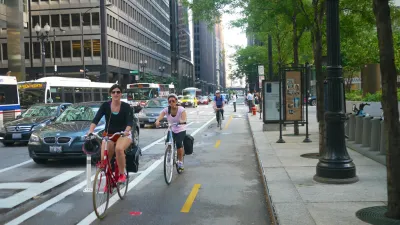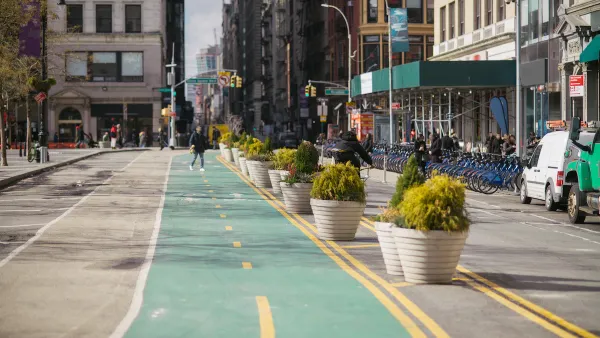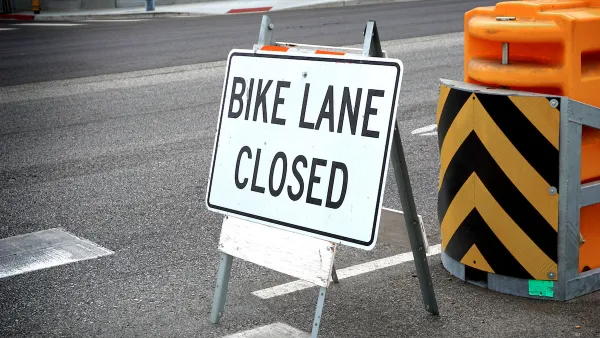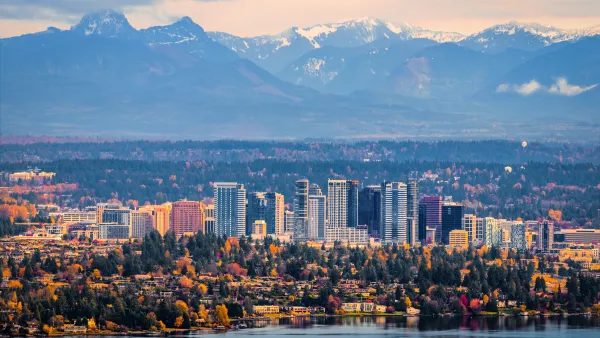Montreal city planners used a simple tactic to illustrate the small portion of area car parking that would need to be foregone in order to build a downtown bike path.

Every city that's ever considered removing auto parking to make room for a protected bike lane has been, understandably, nervous. North America's best city for biking wasn't immune.
But when it was planning its signature downtown bike project in 2005, Montreal got past those concerns with a very simple tactic. Instead of counting only the change in parking spaces on the boulevard De Maisonneuve itself, a measure that might have led to headlines and perceptions that "half of the parking" was being removed, it counted the total number of auto parking spaces — public and private, on-street and off — within 200 meters of the project.
The district, it turned out, had 11,000 parking spaces. Converting one of the corridor's two auto parking lanes to a protected bikeway would remove 300 of them, or just under 3 percent.
"The effect on the debate was suprise," said Jean-Francois Pronovost of Vélo Québec, the bike advocacy and planning nonprofit contracted by the city to study the issue. "No one estimated that there was that number of car parking [spaces] available."

FULL STORY: HOW MONTREAL BUILT A BIKE LANE BY DEBUNKING THE AUTOPARKOLYPSE

Analysis: Cybertruck Fatality Rate Far Exceeds That of Ford Pinto
The Tesla Cybertruck was recalled seven times last year.

National Parks Layoffs Will Cause Communities to Lose Billions
Thousands of essential park workers were laid off this week, just before the busy spring break season.

Retro-silient?: America’s First “Eco-burb,” The Woodlands Turns 50
A master-planned community north of Houston offers lessons on green infrastructure and resilient design, but falls short of its founder’s lofty affordability and walkability goals.

Test News Post 1
This is a summary

Analysis: Cybertruck Fatality Rate Far Exceeds That of Ford Pinto
The Tesla Cybertruck was recalled seven times last year.

Test News Headline 46
Test for the image on the front page.
Urban Design for Planners 1: Software Tools
This six-course series explores essential urban design concepts using open source software and equips planners with the tools they need to participate fully in the urban design process.
Planning for Universal Design
Learn the tools for implementing Universal Design in planning regulations.
EMC Planning Group, Inc.
Planetizen
Planetizen
Mpact (formerly Rail~Volution)
Great Falls Development Authority, Inc.
HUDs Office of Policy Development and Research
NYU Wagner Graduate School of Public Service




























